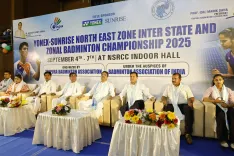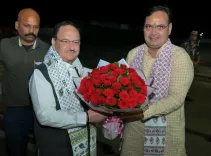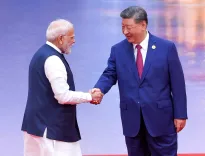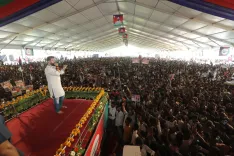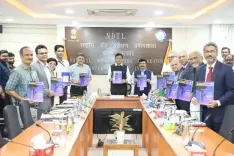How is NHRC Chief Advocating Against Discrimination Towards Trans People?
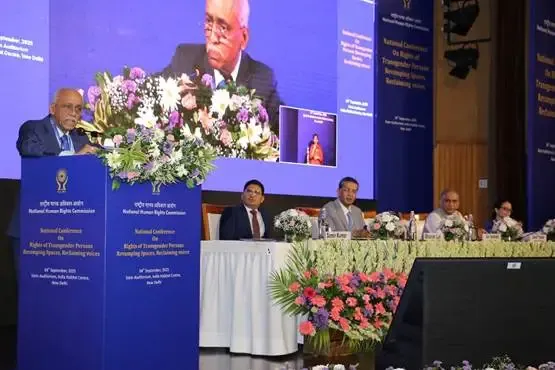
Synopsis
Key Takeaways
- Transgender individuals face discrimination in multiple sectors.
- India has made legal strides in recognizing transgender rights.
- The government is committed to ensuring no discrimination against anyone, including transgender persons.
- Skill training programs are being implemented to enhance employment opportunities.
- A comprehensive report highlights necessary reforms to support transgender individuals.
New Delhi, Sep 4 (NationPress) Advocating for enhanced societal acceptance, NHRC Chairperson Justice V. Ramasubramanian remarked on Thursday that Trans individuals face significant discrimination and stigma across various sectors, including health care, education, employment, housing, and even in accessing restrooms.
Speaking at a comprehensive NHRC conference titled ‘Rights of Transgender Persons: Revamping Spaces, Reclaiming Voices’, Justice Ramasubramanian expressed that India is notably more progressive than many countries when it comes to acknowledging the rights of transgender individuals.
He highlighted that in India, the legislative, executive, and judicial branches have united to turn the principles of Upanishads into constitutional themes, which have subsequently been reflected in court orders and legislation, specifically the Transgender Persons (Protection of Rights) Act, 2019.
However, he pointed out that the constitutionality of certain sections (4, 5, 6, 7, 12(3), 18(a), and 18(d)) is currently under scrutiny by the Supreme Court of India. “In this context, the NHRC is hosting this National Conference as part of our commitment to addressing the needs of approximately 4.88 lakh individuals, as estimated by the 2011 census, who cannot be sidelined,” stated Justice Ramasubramanian.
Amit Yadav, Secretary of the Ministry of Social Justice and Empowerment (MoSJE), affirmed that in alignment with the principles outlined in Articles 14, 15, and 16 of the Constitution, the government is dedicated to ensuring that no one, including Transgender individuals, faces discrimination.
He mentioned that the Government has initiated skill development and vocational training programs for transgender individuals, in accordance with the provisions of the 2019 Act, with the first group nearing the completion of their training.
Additionally, the government is organizing Rozgar melas for transgender individuals and is seeking more collaboration with the private sector to enhance employment opportunities.
The government is also focused on revising welfare schemes and is open to suggestions, stating that funding is not a barrier.
Yadav noted that the grievance redressal mechanism will be fortified in the upcoming months, and the MoSJE is collaborating with the Department of Education to educate children about transgender issues, fostering awareness and working collectively for their rights to equal opportunity, dignity, and inclusion.
An NHRC report titled Transgender Persons: Revamping Spaces, Reclaiming Voices was also unveiled, highlighting insights from Garima Greh Shelters and beyond.
The report underscored the need to strengthen the Garima Greh initiative and proposed several essential reforms.
It advocated for all states to activate Project Monitoring Committees (PMCs) with clearly defined responsibilities for district officials and designated police liaisons for transgender-related issues.
It emphasized the necessity for timely fund releases, revised allocations for food and beneficiaries, context-aware financial models for urban and rural shelters, and infrastructural support through one-time grants.
Staffing structures should conform to market standards, with rationalized roles to prevent overburdening. Shelter leaders should be empowered to assist with transgender ID card issuance through simplified, privacy-conscious processes.

